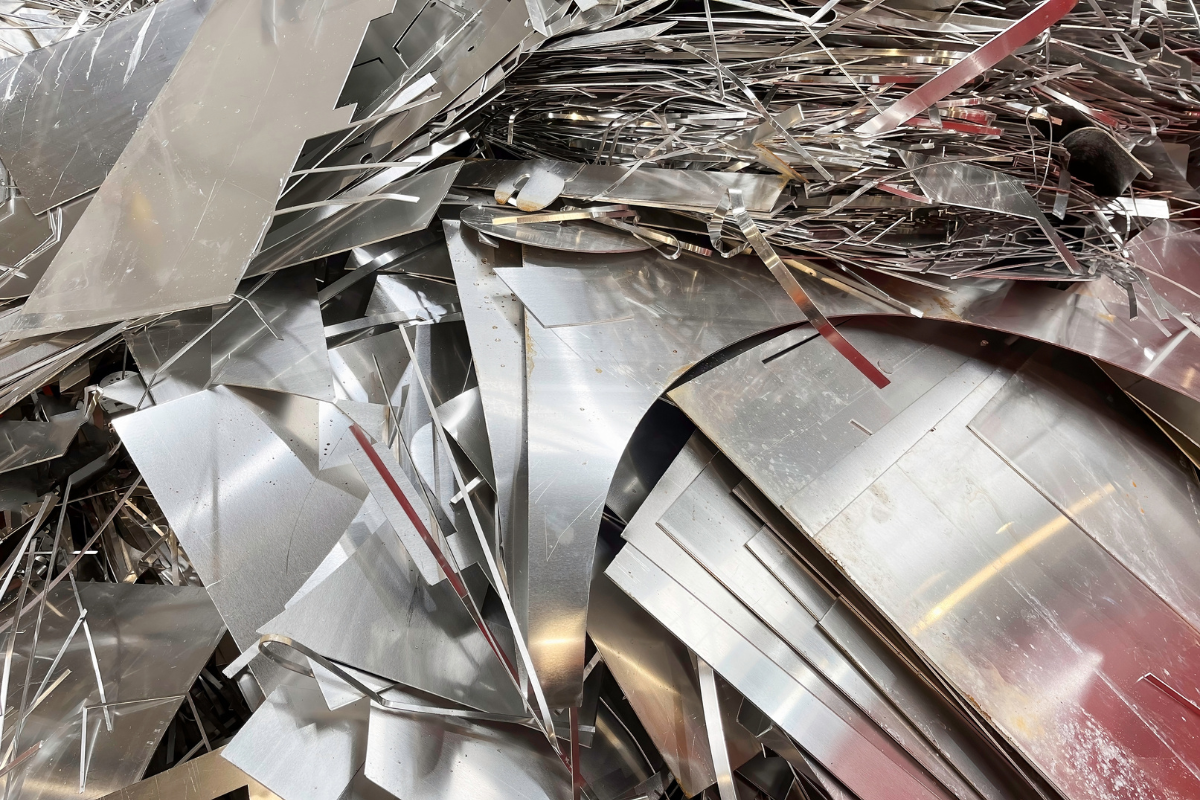
Closed Loop invested in a technology that can take aluminum scrap from any source and turn it into a manufacturing precursor material and energy. | John New/Shutterstock
Closed Loop Partners invested in a company that uses contaminated aluminum to create hydrogen fuel and a raw material used to manufacture aluminum.
Boston-based Found Energy treats scrap aluminum with a catalyst, activates it with water, and creates multiple outputs: Energy, in the form of hydrogen and steam, and alumina trihydrate, which is used to produce aluminum. Danielle Joseph, managing director and head of the Closed Loop Ventures Group at Closed Loop Partners, told Resource Recycling in an email that the New York City-based capital firm invested in the company for the strength of its team, its business model and the circularity embedded in the company.
“Unlike other energy solutions we have seen, Found Energy considered end-of-life from the very beginning of their development process, by designing a process that uses scrap aluminum and wastewater streams to generate their energy, and a fully recoverable [alumina trihydrate],” Joseph said, adding that “we were impressed with the elegance of a solution that uses a ubiquitous metal as a novel hydrogen source, is highly mobile and can be distributed. Distributed assets will continue to be a priority in places where heavy materials would otherwise be transported long distances, or where permitting and absence of transmission infrastructure can keep manufacturing operations from scaling up their energy loads as needed.”
The process can take aluminum scrap from any source, Joseph said, including MRF bales and industrial waste streams. The process removes tramp elements, which cannot be separated easily by current smelting processes, a press release noted.
“While recycling rates for aluminum are generally high, they differ substantially by product, alloy and region, ranging from as low as 20% to as high as 80% for some packaging products,” the press release stated. “We have learned that in the depths of smelters, aluminum recycling is limited to recovery within established alloy classes.”
Found Energy is in the process of scaling up, Joseph said, and is actively building its first 1 megawatt scale unit. Peter Godart, co-founder and CEO of Found Energy, worked on the technology during his time at MIT and NASA for years before launching the company in 2022.
Closed Loop sees “value in finding opportunities to keep more aluminum in circulation as both a material and energy source,” the press release added. The market for alumina trihydrate is valued at more than $150 million and is growing, Joseph said, especially as the substance can also be used as an input to other industrial manufacturing processes.
“Our investment in Found Energy supports our vision for a truly waste-free future across sectors, including renewable energy,” Joseph said. “Reducing waste through circular processes like material recovery and re-manufacturing is critical to advancing the transition to the circular economy, and can help achieve climate mitigation goals and create an ecosystem that is resilient to climate change.”
The press release noted that Closed Loop supports the transition to renewable feedstocks for clean energy, “while recognizing that the structures required to facilitate clean energy transfers, like solar panels and wind turbines, often utilize extractive or single-use resources that frequently end up in landfill after they are decommissioned.”
Joseph said the company is “focused on building the circular economy by advancing solutions that reduce waste across sectors,” which includes materials recovery solutions for renewable energy generation systems.
“The principles of the circular economy need to exist alongside the energy transition to help reduce greenhouse gas emissions – not only from energy production but also from the way we manage the materials used to produce that energy,” Joseph said.

